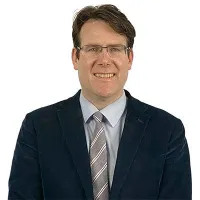Blogs

Opioid weaning
Just as “No man is an island entire of itself” (John Donne), so too is no prescriber an island.
You’ve decided to start prescribing MATOD. You’ve decided to start prescribing either Suboxone or methadone. Great. Very soon you will develop a following of patients who will become dependent on your prescription, your signature and perhaps most importantly, you. If you get sick or go on holiday, and don’t manage your absence properly, the lives of your patients could be put into turmoil. Furthermore if you work in a group practice your practice colleagues will need to pick up the pieces in your absence.
What if they are not MATOD trained? What if they are “anti-druggies?” Not everyone is as enlightened as you are, not everyone wants to help the most vulnerable people in our society.
Because you cannot operate in isolation, because you cannot prescribe in isolation it behoves you to establish good working relationships with your colleagues so that in the event of any absence, planned for unplanned, then at least some form of agreement can be made in principle regarding the management of your patients.
At the very least any doctor who has access to your patient record can act as your Locum and can theoretically continue a pharmacotherapy prescription - even without training. Of course Ideally, any Locum you engage or any other doctor in your practice who is prepared to manage your patients when you are away, should be trained in pharmacotherapy.
So just as you have a duty to engage with your colleagues in order to arrange Locum cover, so too should your colleagues acknowledge your expertise skills and attitudes to your patients. I have heard too often stories of GPs who have undergone special training to prescribe pharmacotherapy, who have gone back to their surgeries and told everyone the good news that they want to engage in this line of work, only to be told by the “Senior Partner” or the practice manager, that the surgery doesn’t do drug addicts.
Please, I urge all surgeries and colleagues to facilitate and encourage any doctor who wants to prescribe pharmacotherapy. By nurturing this skill, your surgery will be better able to meet the combined challenges of prescription opioid dependence and real time prescription monitoring.
Whether you like it or not the tide is coming in, these issues will affect us all, and it is better to have a pharmacotherapy prescriber on your team: imagine having to cope with these challenges without such talent batting on your team.

